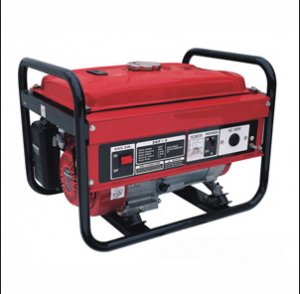 Generators, when functioning improperly, can release harmful gases that are both invisible and odorless.
Generators, when functioning improperly, can release harmful gases that are both invisible and odorless.When power outages occur individuals often resort to portable generators to maintain their households and businesses until electricity is restored. Although portable generators are handy in an emergency, safety precautions must be taken when in use to avoid devastating and often deadly outcomes.
According to the National Fire Protection Association, common dangers associated with the use of portable generators are carbon monoxide (CO) poisoning, electrical shock or electrocution and fire hazards. Reports indicate that the majority of home fires and deaths from carbon monoxide poisoning occur when portable generators are used improperly.
Portable generators can be fueled by natural gas, propane, diesel or gasoline; however, most often, portable generators are powered by gas or propane. The gasoline fuels the generator, as the gasoline burns it emits carbon monoxide (CO). This is extremely dangerous due to CO being odorless, colorless and poisonous.
If the generator is not properly positioned or not functioning properly, individuals risk CO poisoning. Reports by Consumer Product Safety Commission indicate that each year, more than 100 people in the United States die from unintentional exposure to CO gas from portable generators and other fuel burning appliances and products. As sales of portable generators increase so will the number of occurrences and deaths unless safety precautions are taken.
Underwriters Laboratories (UL) in conjunction with U.S. Fire Administration, National Fire Protection Association and Consumer Product Safety Commission recommend the following safety tips in preventing loss of life and property when operating portable generators:
· Follow manufacturer’s instructions.
· Never use generators in the house, garage, crawl spaces or other enclosed or partially enclosed areas even with ventilation.
· Never use generators near doors and windows; this allows CO to enter the home.
· Install carbon monoxide alarms in the home outside sleeping areas and on every level of the home, e.g. battery-operated or plug-in with battery back-up.
· When a CO alarm sounds, it is a warning to occupants that poisonous gases may be in your home.
· If you feel sick, weak or dizzy, immediately, get to an area with fresh air. Within minutes, CO poisoning can lead to incapacitation and death.
· Test CO alarms frequently and replace batteries as needed.
· When placing the generator outdoors, place it as far away from the home as possible.
· Use UL listed/marked outdoor extension cords to connect to the generator.
· Do not overload cords; check for the generators maximum wattage listed on the product and/or label.
· Keep children and pets away from the generator and fuel.
· Never connect generators to other power sources, i.e. power lines; this can create a reverse flow of electricity and electrocute a utility worker unaware of the connection.
Gasoline Storage
· Limit the amount of gasoline stored on the premises; when heated, gasoline expands it produces fumes. The slightest spark such as static electricity can ignite the fumes and start a fire -- an increase in the amount of stored gasoline, increases the amount of fumes emitted, therefore, increasing the risk of fire. Check out this Sinisi Solutions homepage to know more.
Electrical Hazards
To avoid electrical hazards follow these simple steps:
· Keep the generator dry; operate the generator on a dry surface in an open area, e.g., under an outdoor canopy.
· Do not touch the generator with wet hands.
· Plug appliances directly into the generator. If you must use an extension cord use a heavy duty outdoor extension cord.
· Before using, check the cord for wear and tear.
· The plug should have 3 prongs, particularly a grounding pin.
· After starting a generator, wait 10 seconds before plugging in your appliances; this allows the power to stabilize preventing electrical shocks.
· Never plug the generator into a wall outlet; this can create a reverse flow of electricity and electrocute a utility worker or other individuals served by the same utility transformer.
· If you must connect the generator to the home’s wiring to power appliances, you can view it now to learn for yourself or have a professional electrician or utility company install the appropriate equipment.
Fire Hazards
To avoid fire hazards follow these simple steps:
· Do not refuel the generator while it’s running or when hot; turn the generator off, let it cool before refueling.
· Always place stored fuel in non-glass containers with appropriate labels.
· Always store fuels outside living areas and away from fuel-burning appliances.
In preparing for unexpected emergencies, Prince William County Department of Fire and Rescue (www.pwcgov.org/fire) would like to remind the community to review the manufacturer’s instructions and test the generator, at least once a month, to ensure it is in proper working condition.
Support Bristow Beat - Donate Today!